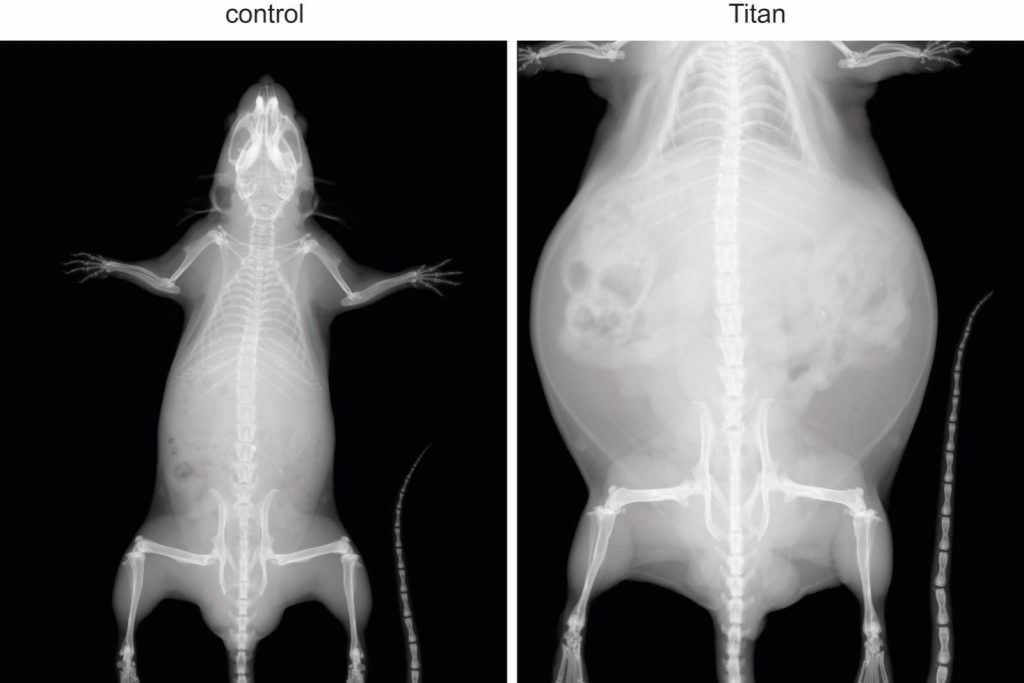New mouse model for interventional obesity research
Suitable animal models are essential for translational research, especially in the case of complex, multifactorial conditions, such as obesity. In this study, scientists of the Research Group Epigenetics, Metabolism and Longevity, Dummerstorf, and the German Mouse Clinic, Helmholtz Zentrum München, characterized the geno- and phenotypes of the mouse line Titan and tested its suitability as an interventional obesity model. The non-inbred mouse line Titan (or DU6) is one of the world’s longest selection experiments for high body mass. Phenotypic characterization revealed that Titan mice are severely obese, giant and short lived. Titan mice also showed modifications in the liver transcriptome, proteome, and epi-genome linked to metabolic (dys)regulations. The dietary intervention with energy-reduced food partially reversed the metabolic phenotype in Titan mice and significantly prolonged their lifespan.
You can read entire article here
Dietary intervention improves health metrics and life expectancy of the genetically obese Titan mouse. Müller-Eigner A, Sanz-Moreno A, de-Diego I, Venkatasubramani AV, Langhammer M, Gerlini R, Rathkolb B, Aguilar-Pimentel A, Klein-Rodewald T, Calzada-Wack J, Becker L, Palma-Vera S, Gille B, Forne I, Imhof A, Meng C, Ludwig C, Koch F, Heiker JT, Kuhla A, Caton V, Brenmoehl J, Reyer H, Schoen J, Fuchs H, Gailus-Durner V, Hoeflich A, de Angelis MH, Peleg S. Commun Biol. 2022 May 3;5(1):408. doi: 10.1038/s42003-022-03339-3. PMID: 35505192; PMCID: PMC9065075.
